18/03/23 - 29/04/23
Robert Filliou
Funny Bones
curated by François Curlet
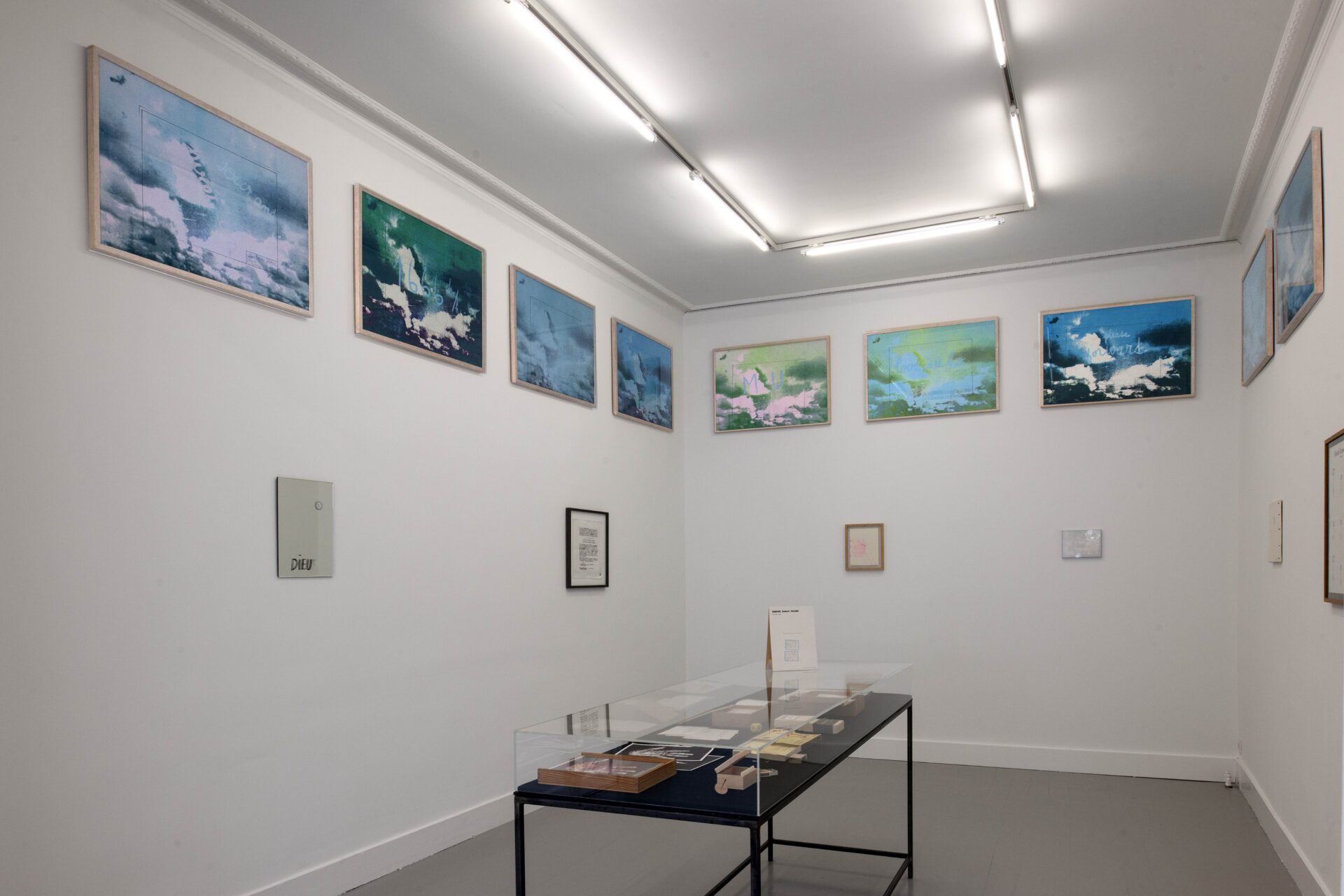
Robert Filliou, Funny Bones, installation view at Jan Mot, 2023
Funny Bones: Robert Filliou through X-, Y- and Z-Rays
By François Curlet, March 2023
Robert Filliou (1926-1987) was trained as an economist in the US and became a UN official in South Korea connected to the country’s reconstruction. His experience with state politics seems to have pushed him in more poetic lands, the Genial Republic and that of the Cucumber, which he invented. He is known to have worked in the Coca-Cola factory in Los Angeles. It was an experience of American productivism; he was not on the side of Pop Art but on the side of the workforce, while keeping a direct contact with the aesthetics of Pop. The virus.
Back in Europe after these American and UN episodes, he settled in Paris, at the time a magnet of the avant-garde where he became acquainted with the world of theatre, among others with Jean-Clarence Lambert (they performed together at the American Center). In the early 1960s, friendships were made with Daniel Spoerri, Erik Dietman, Roland Topor, Arthur Köpke, Marcel Broodthaers. These artists opened unsuspected windows in Filliou’s poet’s room in the rue des Rosiers. Then came the travels — New York City, Düsseldorf, Berlin, Cologne, Copenhagen — and George Maciunas, a sort of Fluxus anti-director, an artist’s impresario who inspired Malcolm McLaren and Vivienne Westwood in a more commercial vein.
Often identified as an artist linked to this movement, where chance, the moment, games, and humour coexist in an aleatory framework linked to a post-atomic and relativistic era. This gaseous movement released heterogeneous personalities.
It was his meeting with George Brecht, a chemist by training, who showed him the path of doubt and chance as decisive elements of creation, in the wake of John Cage. A personal resurgence of the interest in systems took hold of Filliou. These two characters would open their laboratory La Cédille qui sourit (“The Smiling Cedilla”) from 1967 to 1968 in Villefranche-sur-Mer. The non-school of Villefranche. The idea of Permanent Creation, the Principle of Equivalence (well done = badly done = not done), the Eternal Network and intention as primary value over the material.
The notion of the multiple as an original artwork with the gift of ubiquity. Providing a bit of shelter to artistic production from feral surplus value. A small factory of original works conceived as such, joining the parade in flamboyant costume in the middle of the consumerist carnival. The uses of DIY, the playful space, and the mental shortcut before the time of computer technology — the whole idea of networks is ancestral to Filliou. The state of mind comes before technique and stylistics; genius over talent sees the latter as merely laborious.
Wasting time inventing an artist’s image as a communication tool is delusional. Temperament obliterates an action, a gesture, a sign better than a visual affectation used to enhance a professional brand.
For more than a century, the first person to exhibit her/his finds earns her/his keep like in an old-fashioned dual, and wins the copyright of the useless inventor. The dead don’t have regional accents, while the Estates speak airport English.
The character, the mentality imbues the works. Letʼs enjoy the dream-like quality of the phone book and of the incoherence of administrative aesthetics — that of the poetic field, a reflection of bureaucratic absurdity and of the generosity of the void.
The option of the applied signature, with its fetishist and legal character, calls forth the calligrapher. A story begins, a furtive certainty perfumes us.
(Translated from the French by Antony Hudek)
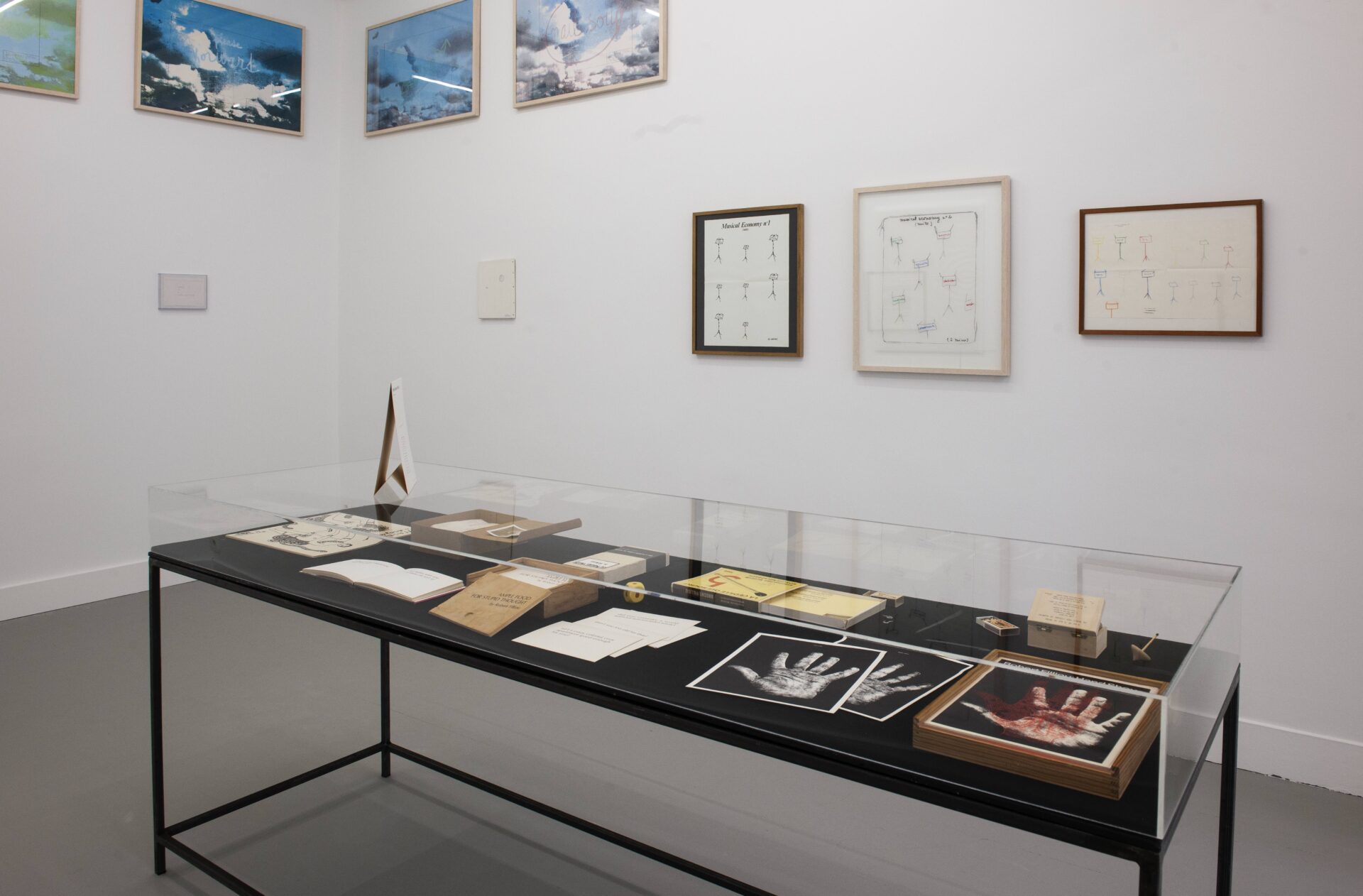
Robert Filliou, Funny Bones, installation view at Jan Mot, 2023
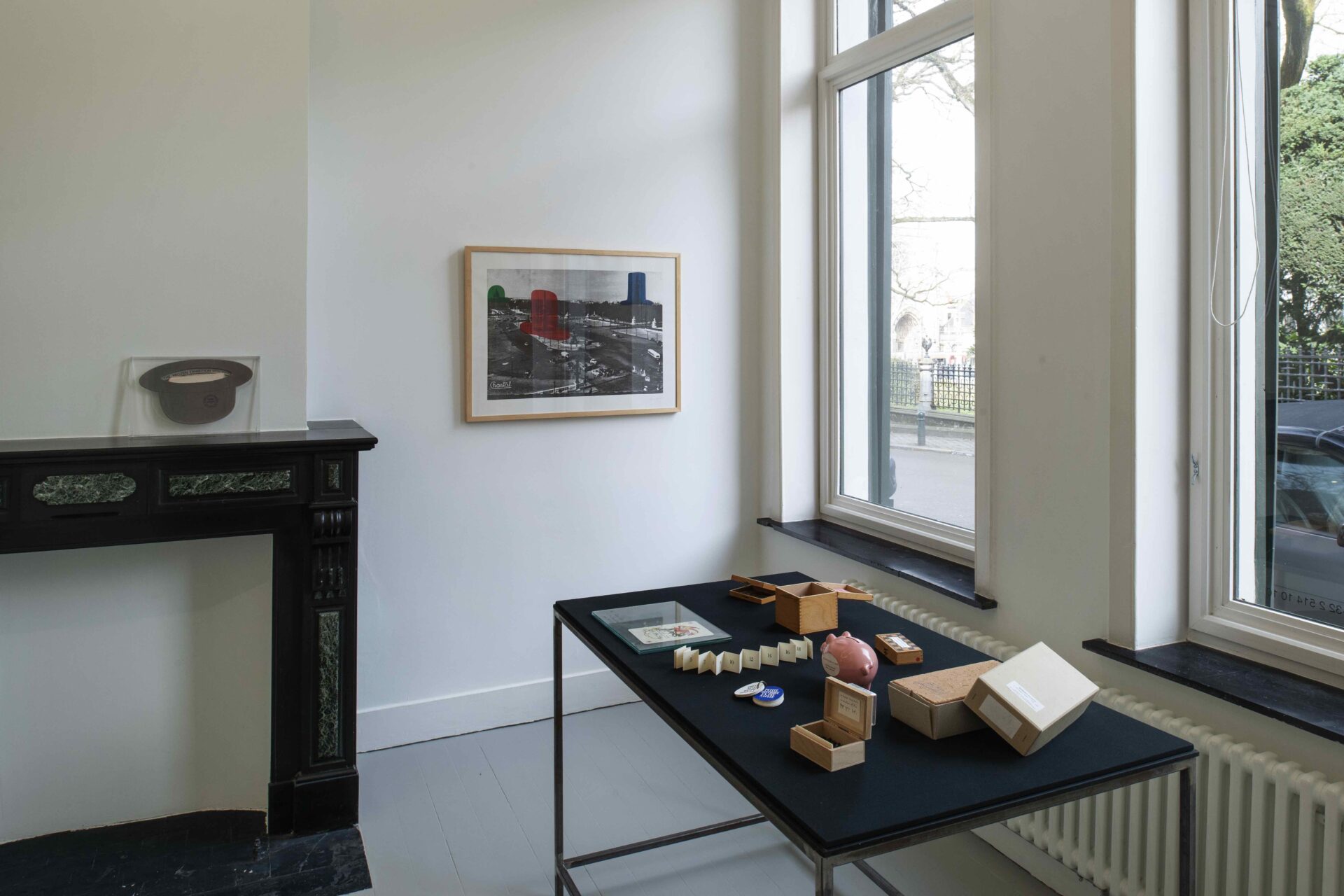
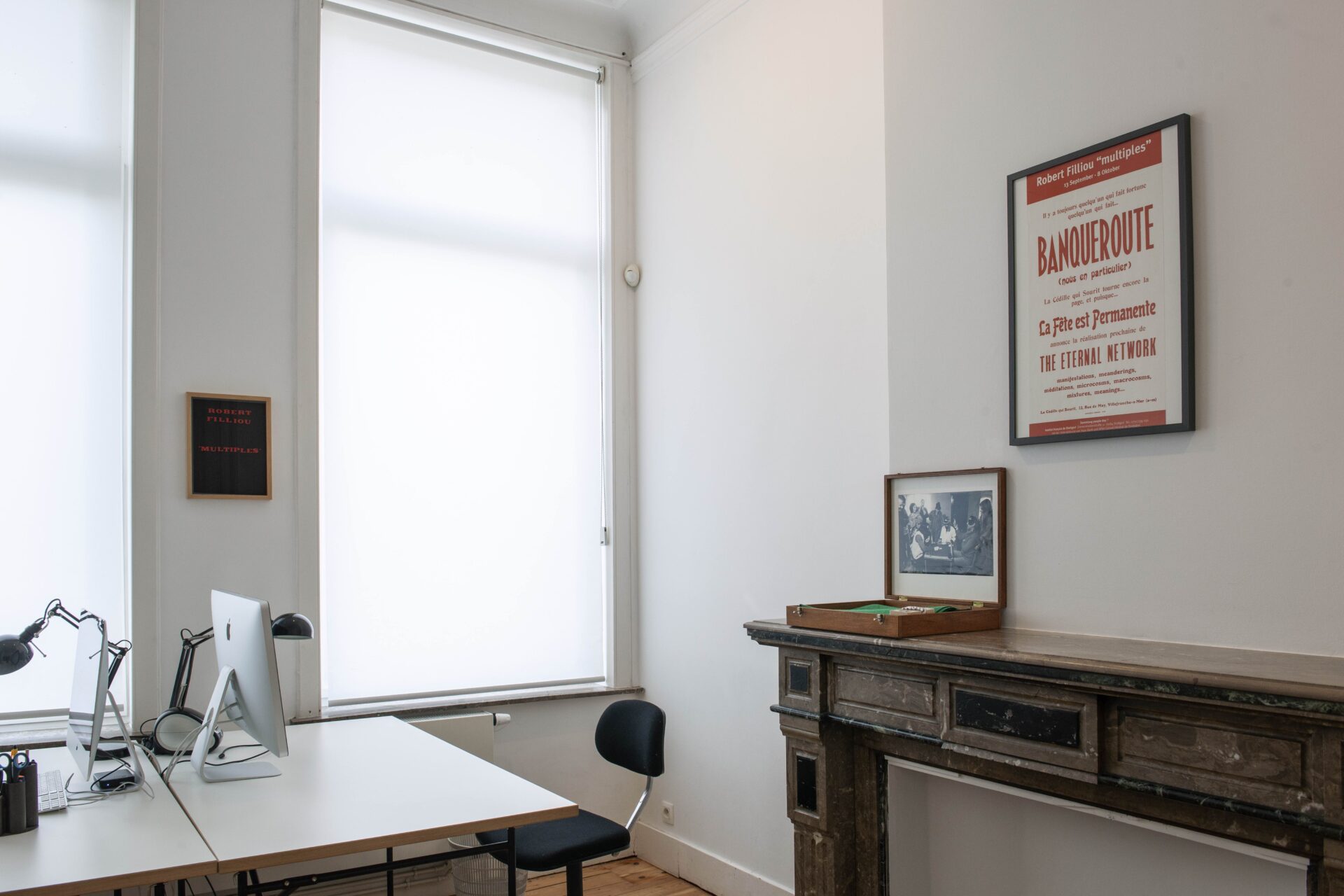
from left to right: François Curlet, Annonce, 2000, collage, unique; Robert Filliou, Leeds: A New Card Game, 1976, playing cards, two blindfolds, visor, chip rake, two elastic sleeve garters, felt playing mat in wooden box with instructions and gelatin silver print, ddition of 100, Ed. ARROCARIA, Antibes; François Curlet, Facsimile of Robert Filliou’s and George Brecht’s poster ‘Banqueroute’, 1968, 1997, printed paper, unlimited edition, Ed. people day ®
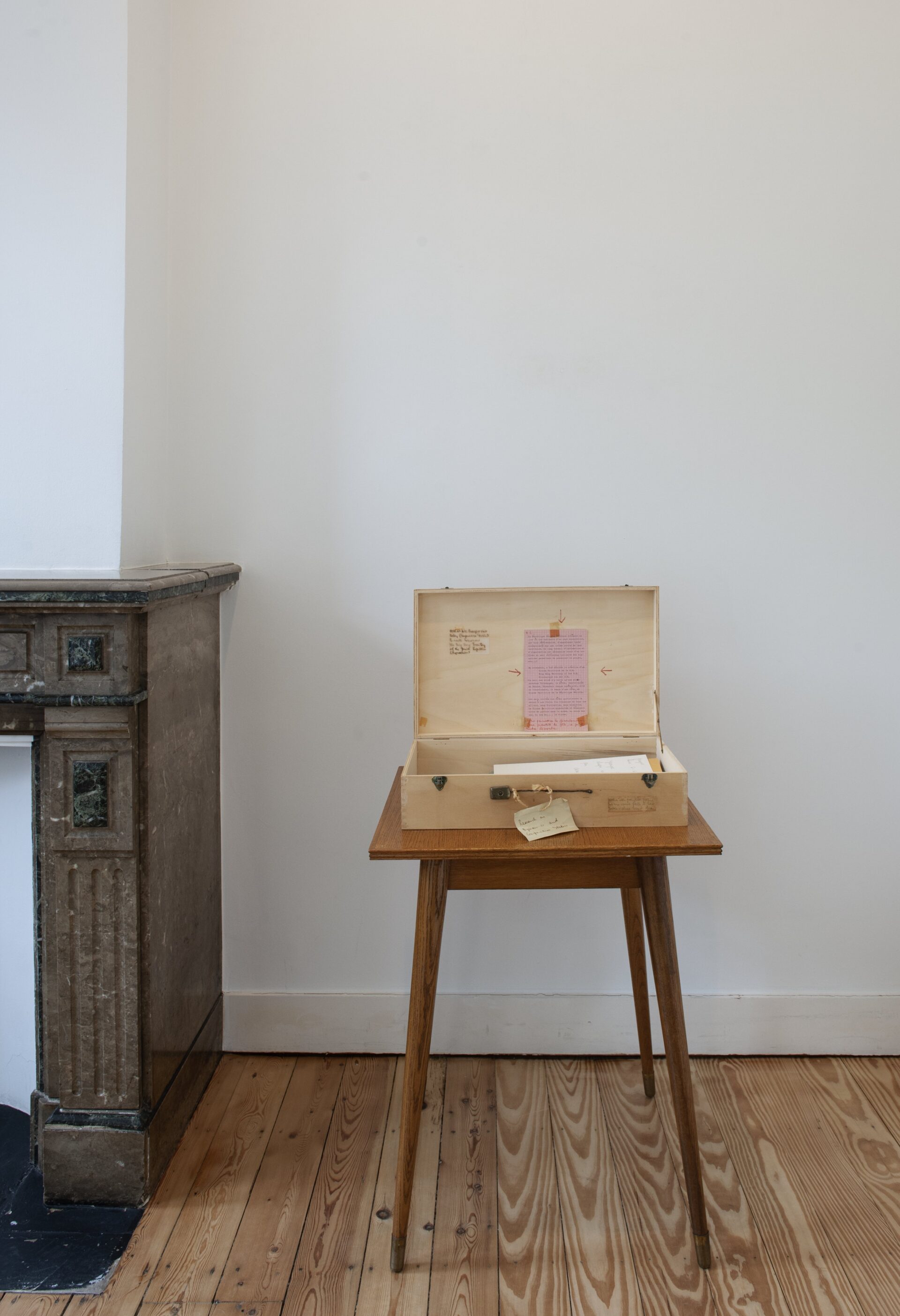
Robert Filliou, Research in Dynamics and Comparative Statics, 1972-1973, wooden suitcase, manuscripts, facsimile typescripts, colored folders, audio cassette, typed card taped inside the lid, wire handle, string, labels and oil pastel annotations, edition of 30 + 6 A.Ps, Ed. Lebeer Hossmann, Brussels/Hamburg
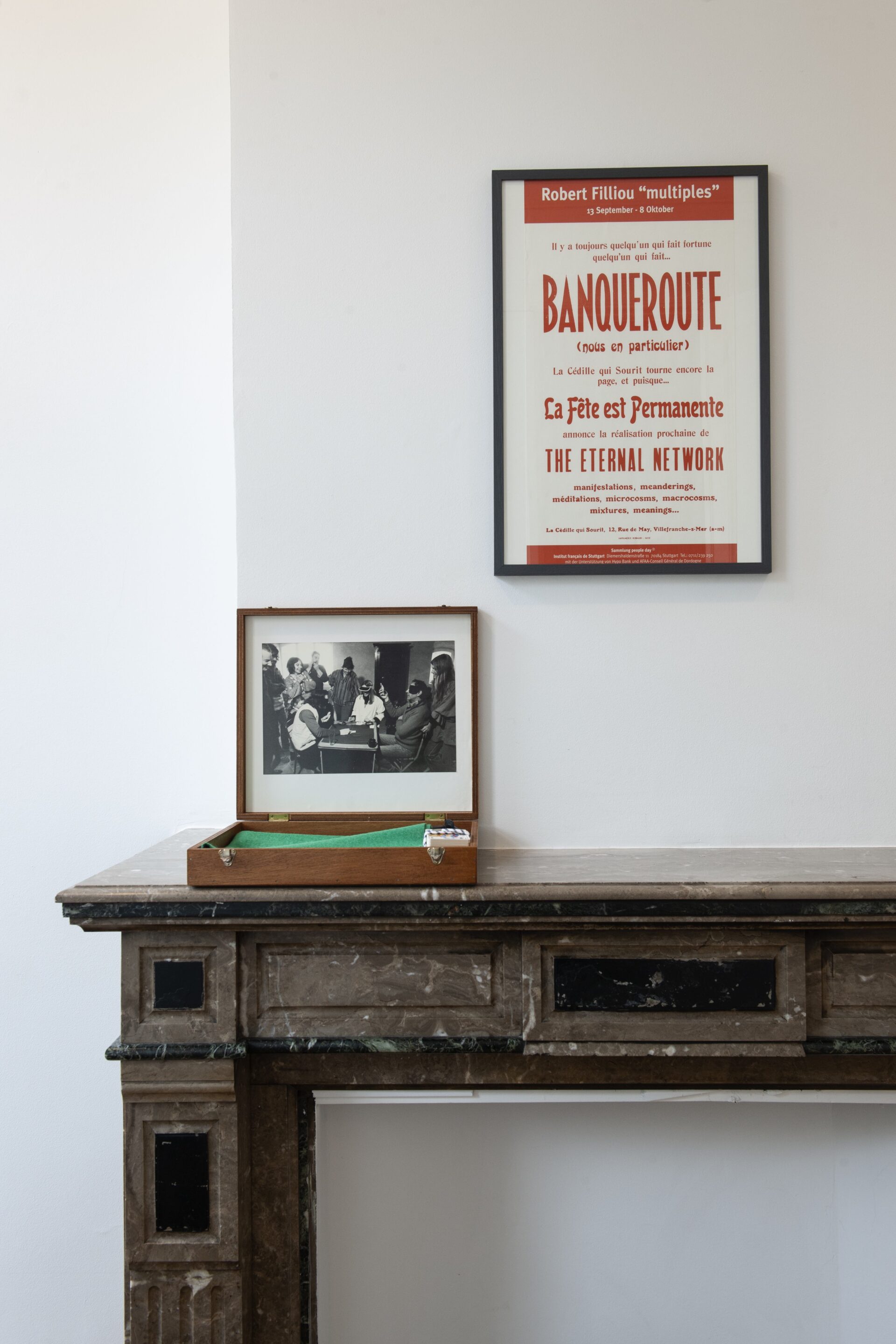
from left to right: Robert Filliou, Leeds: A New Card Game, 1976, playing cards, two blindfolds, visor, chip rake, two elastic sleeve garters, felt playing mat in wooden box with instructions and gelatin silver print, ddition of 100, Ed. ARROCARIA, Antibes; François Curlet, Facsimile of Robert Filliou’s and George Brecht’s poster ‘Banqueroute’, 1968, 1997, printed paper, unlimited edition, Ed. people day ®